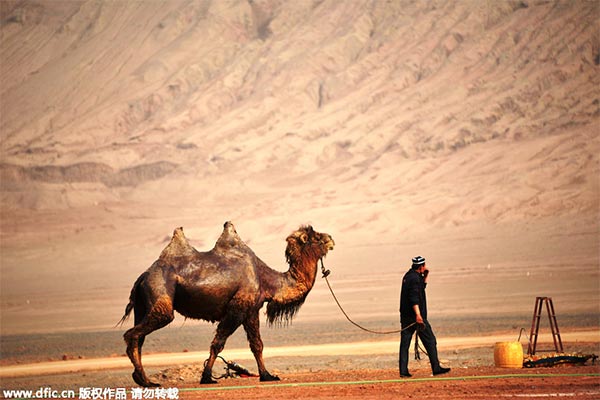 |
|
A man and a camel are seen in a scenery area in Turpan, Xinjiang Uygur autonomous region on April 6, 2014. [Photo/IC] |
Shen describes his poems on Xinjiang as a "castle of language" and his collection of essays as a "small house near the castle" through which one can enter the region.
A Dictionary can also serve as a book that introduces the region's scenic spots, such as the Tianshan Mountains and Tianchi Lake.
"You can see the spirit of those places through the author's eyes and minds. So the book is more profound than a tourist guide," says He, the professor.
Shen takes poetry as the highest goal of his writing and hopes readers can take the poetic meaning of his expressions from A Dictionary.
As an East China native living in Xinjiang for the past 27 years, Shen describes Xinjiang in a way that's different from native poets and authors.
"I use a dozen styles ... including prose, fairy tales, stories, diaries, letters and so on," he says.
"I am trying to look for literary expressions amid the multicultural background. Mixed cultures are brilliant and vigorous cultures, like those of the ancient Silk Road."
Literature deals with love, pain and death-themes that are universal and go beyond borders and races, according to Shen.
"What we, the writers of Xinjiang, need to do is to break down regionalism and represent universal human nature in our works."
Related:
Hugo Award to open new chapter for Chinese sci-fi
10 literary works on World War II
|
|
|
|
|
|
|
|
